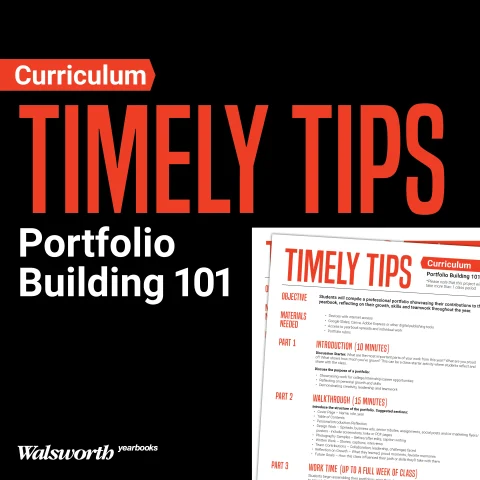Well-written job descriptions are like fences providing defined boundaries for what is inside and outside the enclosure. For students, job descriptions define their role on the yearbook staff and help them meet the expectations of their position. But the descriptions also aid advisers, who can use them to develop their staffs and ensure goals are accomplished.
“Having specific, targeted responsibilities enables a student to go about curbing his direction so it becomes focused,” said Sandy Jacoby, adviser at G.N. Tremper High School, Kenosha, Wis. “If there aren’t any job descriptions, and they don’t know what’s expected of them, it may lead to a different outcome.”
However, Jacoby augments a written job description with a face-to-face discussion with each staff member that provides an opportunity to mentor the student and help them grow through the year.
Talking through the job duties can help students set and understand their goals. She walks through each of the tasks the student needs to perform so he can reach the larger targeted goals set out in their job description.
For example, if the editor-in-chief is required to check every page, what does that specifically mean? What are the procedures the adviser expects the editor-in-chief to follow to get that accomplished? When people know up front what is required of them, they are more likely to be successful and not disenchanted, Jacoby said.
“Yearbook is the best way to help young people establish goals and to create something lasting,” she said.
Talking with students individually opens a greater rapport. Jacoby said teenagers have a natural defense mechanism — they do not listen to adults. With a staff of approximately 50 students each year, these discussions allow her to spend time with each student, break down that barrier, and use the job description to further delve into the purposes behind the job title.
“These things have to be tempered with the relationship with each individual and who they are,” Jacoby said.
She encourages new advisers to examine the many different ways of leading a staff because they will have to find their own style of management. They need to take into account their school, their students and their product.
“Is it the people or the book? Sometimes we forget the reasons we choose to do this. It is about advisers mentoring teens, mentoring students,” she said. “If you lose sight of that as an adviser you can’t continue, if you don’t connect with them in that way.”



